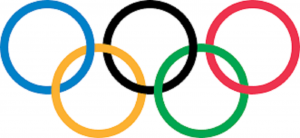The Volokh Conspiracy
Mostly law professors | Sometimes contrarian | Often libertarian | Always independent
How to Fix the Dark Side of the Olympics
The Olympics are a great sports event, but one that also often causes great harm. Here are five reforms that can fix that.

Today is the first day of the 2024 summer Olympic Games, held in Paris. I'm a big sports fan, and I love watching the games. But it's also true that the Olympics have awful dark sides. Past games have featured horrible forcible displacement of residents to make way for stadium construction, saddled taxpayers with huge cost overruns, and served as propaganda showcases for brutal authoritarian regimes, such as those of Russia, China, and Nazi Germany.
This year's games are less bad than many previous ones. France, for all its faults, is not a mass-murdering authoritarian state, like Russia or China. And the Paris organizers have, to some extent, kept costs down by relying on existing facilities. Nonetheless, some migrants and homeless people have been forcibly displaced for the games (researchers estimate that some 12,500 people were forced out), and I will be very surprised if French taxpayers avoid being burdened with severe cost overruns, even if they are smaller than those for many previous Olympics.
It doesn't have to be that way. In 2022, in the aftermath of the awful Beijing Winter Games, I outlined a series of reforms that can fix the dark side of the Olympics, while preserving their role as a great athletic competition:
1. No public subsidies. Let the games be funded purely by private organizations and sponsors, as was largely the case for the successful 1984 Olympics in Los Angeles. That way, no one has to pay for the games, except those who profit from them and the audience that voluntarily chooses to watch.
2. No forcible displacement of residents, private businesses, or civil society organizations. We can and should hold sports events without kicking innocent people out of their homes.
3. No hosting rights for authoritarian human rights violators. There are plenty of possible Olympic venues that aren't controlled by likes of Vladimir Putin and Xi Jinping. Denying these types of rulers hosting rights won't fundamentally alter their regimes. But it will at least damage their image and deny them propaganda victories.
4. There must be full freedom of speech in the Olympic Village and all other Olympic venues. At the very least, athletes, journalists, and spectators should be entirely free to criticize the host government and its policies (or any other government for that matter) [freedom of speech has often been violated when authoritarian states host the Games].
5. There must be no "public health" measures blocking normal human interaction between athletes, members of the media, and residents of the host city. Such measures defeat the whole point of having the Games in a particular city in the first place. If the Games are to be held in a "bubble," that can be done almost anywhere. Moreover, scientific evidence increasingly shows that lockdowns and other similar restrictions on freedom of movement do little to stop the spread of Covid, while causing enormous harm. But if a city really is somehow too disease-ridden to allow normal human interaction, it is also too disease-ridden to host the Games.
Point 5 was inspired by the ridiculously oppressive Covid restrictions at the 2022 Beijing Games. It will only occasionally be relevant. But the others have broader applicability.
I also explained how the US and other liberal democracies could force the International Olympic Committee (IOC) to adopt these reforms:
[N]one of these ideas are likely to be adopted by the notoriously corrupt International Olympic Committee. Time and again, the IOC has proven that it is willing to tolerate almost any injustice, so long as the organization and its leaders benefit.
But the United States and other liberal democracies can easily force through these reforms simply by making them a condition of future participation in the games. Without the participation of the US and its allies, IOC revenue would plummet, as the value of broadcast rights massively declines.
The question is whether the US and other Western governments have the political will to do what needs to be done. On that score, I am far from optimistic….
[T]he US and other democracies can make these demands more credible by threatening to host alternative Winter and Summer games of their own. This would undermine the objection that boycotts unfairly deprive athletes of the opportunity to compete at the highest level. I suggested a similar strategy to force the IOC to move the 2022 games out of Beijing.
I remain pessimistic that this strategy will actually be pursued anytime soon. But when and if we have the will, there is a way.


Show Comments (78)